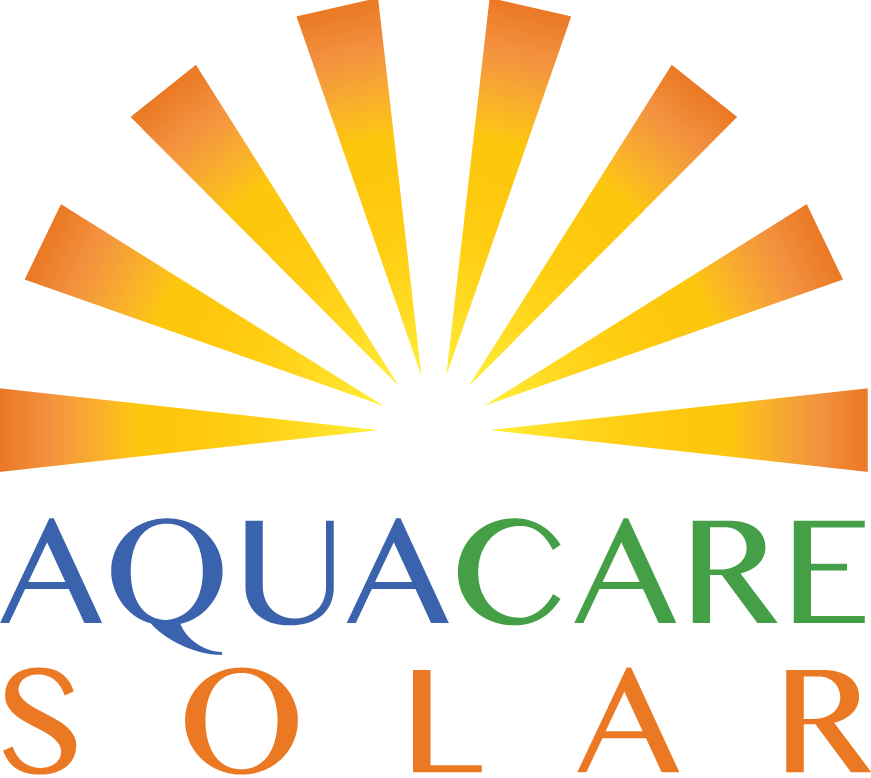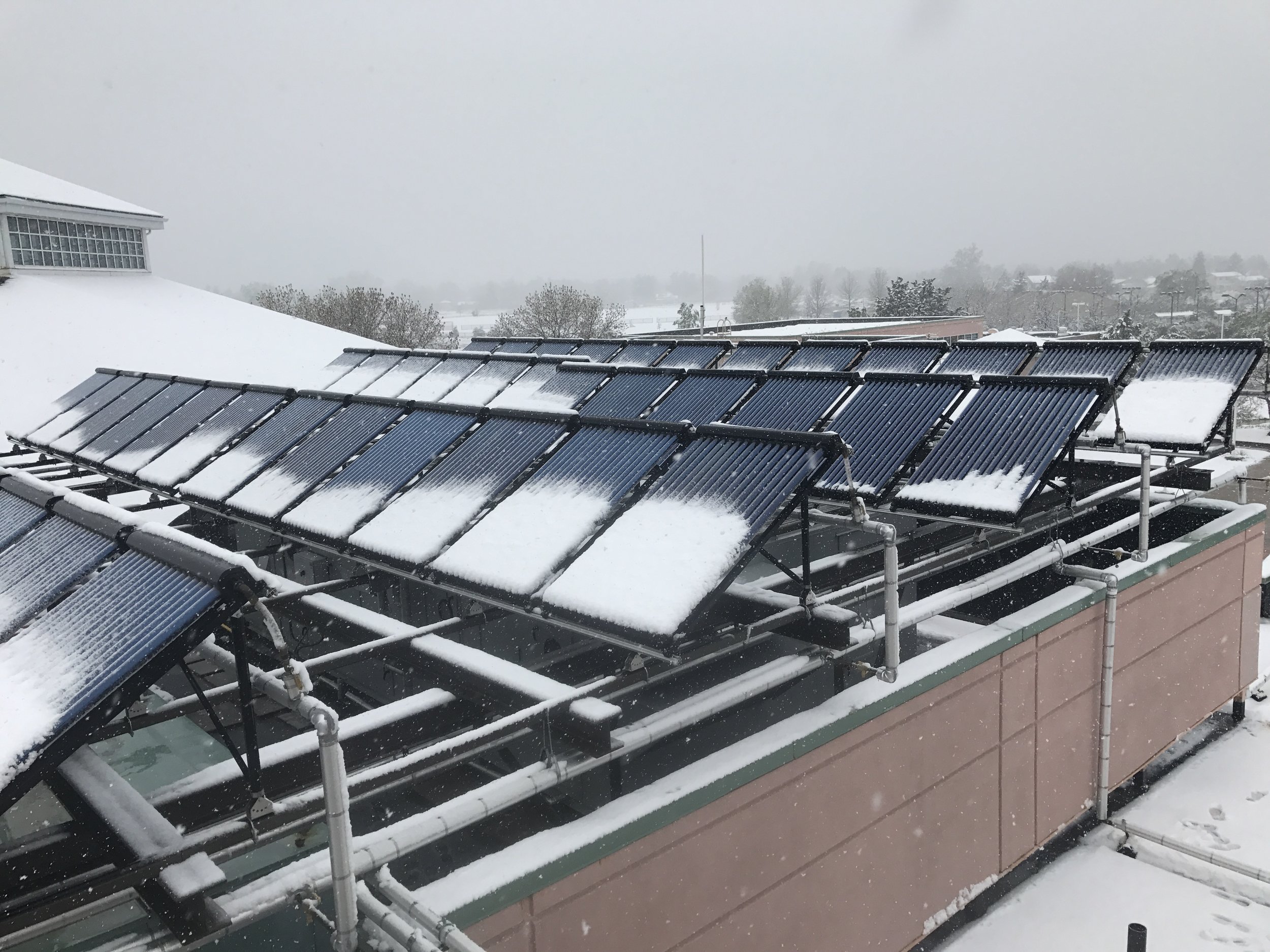UCCS Rec Center
East Boulder Rec Center
Erie Rec Center
About 10 years ago, the Boulder/Denver region saw a handful of commercial solar thermal water heating systems installed. The systems are largely installed on the region’s recreation centers for pool, spa and domestic hot water heating. Unfortunately, many of these systems had engineering challenges from the beginning linked either to poorly designed controls or insufficient thermal expansion or both. The commercial systems would contribute small amounts of heat to sustain pool temperatures, but often in the late morning would have satisfied the demand for heat and sit idle, building heat. This idle period would remain for much of the day in what is known as stagnation. Stagnation results from the heat transfer fluid (propylene glycol) reaching temperatures of 300+ degrees and often this would result in the glycol flash boiling and the pressure within the system exceeding the safety pressure relief valves. This sudden increase in pressure would cause the glycol (in the form of steam) to rush into the expansion tank until its capacity had been reached and then inevitably spray out of the pressure relief valve and be lost to the system. We are consistently finding that these systems and their associated expansion tanks were not built to accommodate the volumes of glycol that the system holds and are commonly losing thousands of dollars of glycol in what is known as “blow-down”. Not only is this regular occurrence quite costly, but it also renders the system inoperable as the system would now be low on glycol. Usually, these systems develop an air lock restricting the flow of glycol through the thermal collectors and further creating additional glycol stagnation.
We understand the tight tolerances with regard to target pool and spa temperatures and the need to supplement the heat during the non-solar hours (night time) with boiler assistance. Most facilities are required to maintain their pools within 4 degrees of the target temperature, for fear that during the morning hours their boilers may not be able to catch-up prior to pool opening hours. For this reason, we suggest utilizing solar storage vessels to capture solar contributions and deliver them throughout the day and evening. We also strongly recommend remote monitoring controls with priority settings, but most importantly we mandate the incorporation of additional thermal expansion to accommodate the collectors idle times when all loads have been met. When the tanks are properly sized and charged, this eliminates the loss of glycol from “blow-down” and allows the system to remain stable even during times of pool closures or power outages when no loads are available.









